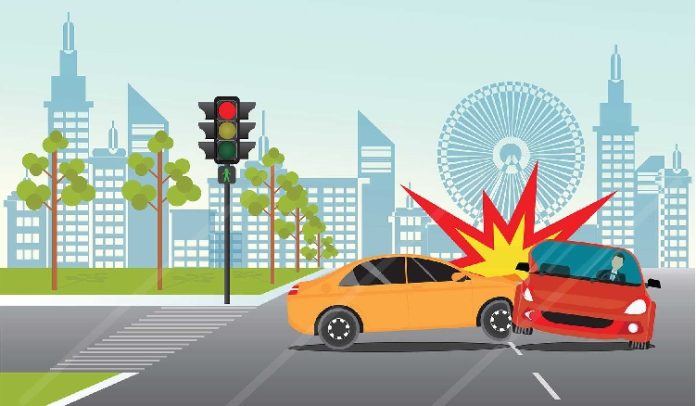Imagine this: You’re driving along the highway when another driver rear-ends yours. After the initial shock of the collision, you start to feel pain in your neck and back. You may have whiplash or a more severe spine injury.
Car accidents can cause various injuries, some of which may not be immediately apparent.
It is essential to see a doctor as soon as possible after an accident, even if you don’t think you are injured. Some injuries, such as whiplash, may fail to manifest until several days or even weeks after the car accident.
This blog post discusses some common car accident injuries, how they occur and what treatment options are available.
1. Whiplash
Whiplash is one of the most common car accident injuries. It occurs when the force of the collision causes your head to snap forward and then backward in a whip-like motion. This can damage the soft tissues in your neck, including the muscles, ligaments, and discs.
Also read: What Is The Role of Car Insurance in a Car Accident?
Symptoms of whiplash include neck pain and stiffness, headaches, dizziness, fatigue, and difficulty concentrating. Whiplash can also cause psychological symptoms such as anxiety, depression, and sleep problems.
Treatment options for whiplash include pain medication, physical therapy, massage, acupuncture, and chiropractic care. In some cases, surgery may be necessary to correct the damage.
2. Spinal Cord Injuries
Spinal cord injuries can be severe and potentially life-changing injury. It occurs when the force of the collision damages the spinal cord, which is the bundle of nerves that runs from the brain to other body parts.
Symptoms of a spinal cord injury can include pain, numbness, paralysis, and difficulty breathing. The severity of the symptoms depends on the location and extent of the injury.
In some cases, the spinal cord injury may be incomplete, meaning the victim still has some sensation and movement below the level of the injury. Incomplete injuries tend to have better outcomes than complete injuries, which cause complete paralysis.
Treatment options for a spinal cord injury include pain medication, physical therapy, surgery, and rehabilitation. The goal of treatment is to reduce symptoms and help the victim regain as much function as possible.
3. Brain Injuries
A brain injury can occur when the force of the collision causes the head to strike an object or when an object penetrates the skull and enters the brain. Brain injuries can range from mild concussions to more severe injuries such as traumatic brain injury (TBI).
Symptoms of a brain injury can include headache, dizziness, nausea, fatigue, difficulty sleeping, difficulty concentrating, memory problems, and mood swings. More severe symptoms can include seizures, paralysis, coma, and death.
Treatment options for a brain injury depend on the severity of the injury. Mild concussions can be treated with rest and over-the-counter pain medication. More severe brain injuries may require hospitalization, surgery, and rehabilitation.
4. Broken Bones
Broken bones are another common car accident injury. The most common break is a fracture, which occurs when the bone is cracked or broken. Fractures can occur in any bone, but the most common are arm, leg, wrist, and ankle fractures.
Also read: Critical Factors That Affect Your Car Insurance Premium
Symptoms of a fracture include pain, swelling, bruising and difficulty moving the affected limb. Treatment options for a fracture include rest, ice, compression, elevation (RICE), pain medication and surgery.
5. Internal Injuries
Internal injuries are another common car accident injury. These occur when the force of the collision causes organs to strike each other or be damaged by broken bones. Common internal injuries include blunt force trauma, lacerations, and organ damage.
Symptoms of internal injuries can vary depending on the type and severity of the injury. They can include abdominal pain, difficulty breathing, chest pain, dizziness, and confusion.
Treatment options for internal injuries depend on the type and severity of the injury. In some cases, surgery may be necessary to repair the damage. Other treatment options include pain medication, rest, and physical therapy.
6. Emotional Injuries
Car accidents can also cause emotional injuries such as anxiety, depression, and post-traumatic stress disorder (PTSD). These injuries can be just as debilitating as physical ones and make it difficult to return to normal life.
Treatment options for emotional injuries include therapy, medication, and support groups. It is essential to seek treatment as soon as possible after the accident to prevent the emotional injuries from worsening.
Summary
Car accidents can cause different injuries, some of which are quite serious. If you have been in a car accident and are experiencing pain or discomfort, it is crucial to seek medical attention immediately.
The sooner you receive treatment for your injuries, the better your chances of making a full recovery. Contact an attorney if you believe someone else was at fault for the accident that caused your injuries.







